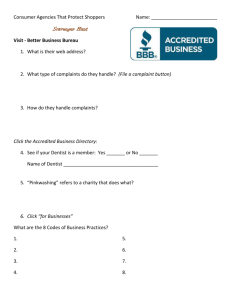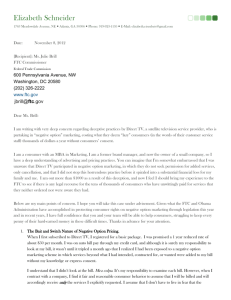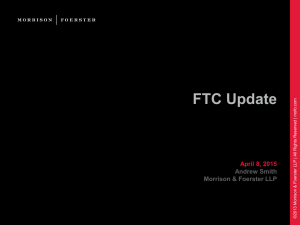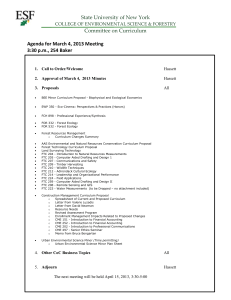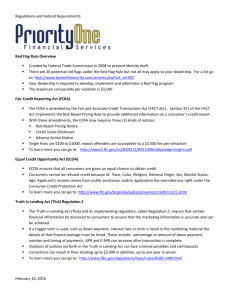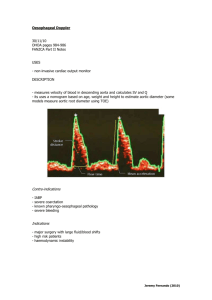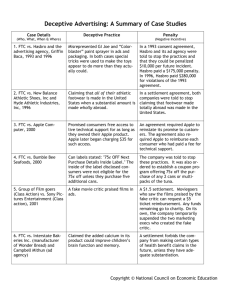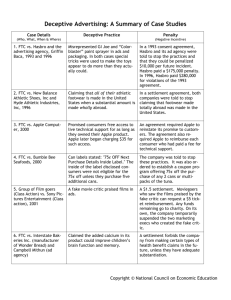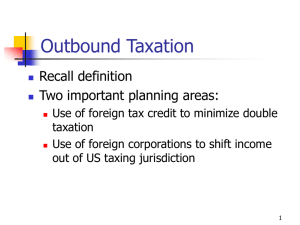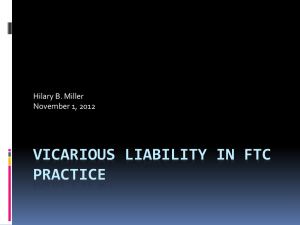References
advertisement
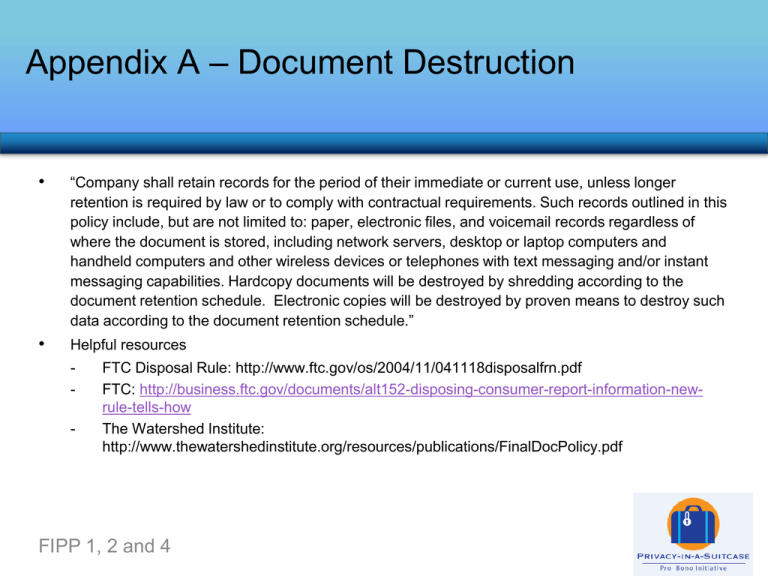
Appendix A – Document Destruction • “Company shall retain records for the period of their immediate or current use, unless longer retention is required by law or to comply with contractual requirements. Such records outlined in this policy include, but are not limited to: paper, electronic files, and voicemail records regardless of where the document is stored, including network servers, desktop or laptop computers and handheld computers and other wireless devices or telephones with text messaging and/or instant messaging capabilities. Hardcopy documents will be destroyed by shredding according to the document retention schedule. Electronic copies will be destroyed by proven means to destroy such data according to the document retention schedule.” • Helpful resources - FTC Disposal Rule: http://www.ftc.gov/os/2004/11/041118disposalfrn.pdf FTC: http://business.ftc.gov/documents/alt152-disposing-consumer-report-information-newrule-tells-how The Watershed Institute: http://www.thewatershedinstitute.org/resources/publications/FinalDocPolicy.pdf FIPP 1, 2 and 4 Appendix B – Security • Helpful resources - SANS Institute – www.sans.org - This website contains a number of sample security policies, including for computers, emails, HIPAA, mobile and wireless. - View a primer on developing security policies: http://www.sans.org/securityresources/policies/Policy_Primer.pdf InfoSec Reading Room: http://www.sans.org/reading_room/whitepapers/awareness/ultimate-defense-depthsecurity-awareness-company_395 FIPP 1 and 4 Appendix C – BYOD Policy Considerations • • • It is important for your company to create a BYOD policy before allowing any employee to BYOD. For more information: http://www.citrix.com/site/resources/dynamic/additional/byod_best_practices.pdf. Policies should include: - • Employee responsibilities for devices; Eligibility requirements and limitations for devices; Limiting applications and/or data access; Reservation of the right to wipe company data and/or the entire device; A disclaimer of any liability of loss of personal applications or data; Any other restrictions including but not limited to the use of browsers, wireless or other services; Payment for the devices. Security policy considerations include: - Require use of whole device password and/or requirements for when passwords must be changed; The process for handling lost/stolen devices; Timeline requirements for reporting lost/stolen devices; Enforcement of password and other security measures; Repair and/or upgrade of devices; Requirement to install software. FIPP 1, 2 and 4 Appendix D – Privacy • Helpful resources - - FTC: - http://www.ftc.gov/opa/2012/03/privacyframework.shtm - http://www.ftc.gov/privacy/coppafaqs.shtm - http://business.ftc.gov/documents/bus55-getting-noticed-writing-effective-financial-privacynotices For mobile app developers visit: https://www.cdt.org/report/best-practices-mobile-applicationsdevelopers FIPP 1, 2 and 4

